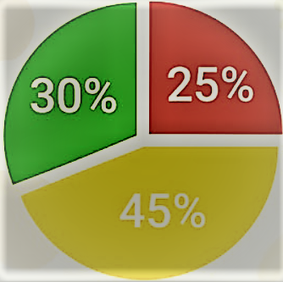
Virtual Personal Trainer's philosophy does not consist of telling what to eat as food choices vary across cultures and personal likes. So, for long-term weight loss and maintenance, I rather recommend to choosing foods wisely. Being more specific, focusing on “calorie density” (i.e. how many calories are contained in a particular meal), can be fundamental for healthy eating and a sustainable Ideal Weight. For example, a full bowl of french fries is much denser and has a lot more calories than a bowl of mandarins because mandarins have more water.
Thus, the idea behind is to color foods by calorie density, using different colors: green, yellow, and red, from light to higher calories, and organizing our meal choices wisely so that we always and unconsciously eat healthily.
Virtual Personal Trainer strongly recommends using this simple green, yellow, and red coloring system in order to educate and encourage you to make healthy food choices. Though no foods are particularly prohibited, making smart food choices to stay within your recommended daily calorie intake will definitely help you to lose weight and keep you fit forever.
Green-colored foods
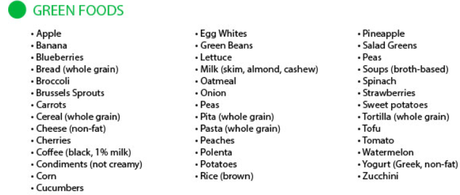
Green foods are the healthiest food category as it mostly consists of low calorie-density foods like fruits, vegetables, and whole grains.
Green foods have a high content of water and nutrients. These types of foods will make you feel full (of few calories) while giving you the feeling of eating healthy.
Yellow-colored foods
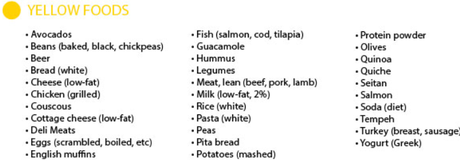
Foods colored as yellow have more calorie-density and are less nutritive (per serving) than those in the Green category.
The yellow category contains foods such as lean meats, starches, and carbohydrates like white pasta and white rice. Generally speaking, yellow foods are recommended to be eaten in moderation.
Red-colored foods
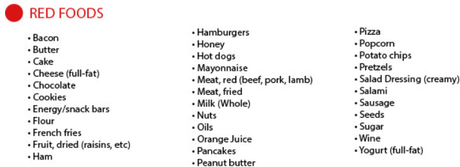
And we got to the red category. Red foods are the most calorie-dense and the less healthy ones. In other words, you will need to eat a lot of calories from red foods to make you feel full, so it is highly recommended to eat them less frequently or in very small portions.
Foods in the red category include red meats, processed foods, desserts, and alcoholic drinks. Though red foods are not prohibited, they should be eaten in absolute moderation.
How it works
Finally, you will have to wisely organize your meal choices by applying an appropriate calorie-density distribution: from a worst-case scenario (30% (green foods) - 45% (yellow foods) - 25% (red foods) to a more healthy scenario (70% (green foods) - 25% (yellow foods) - 5% (red foods).
The idea of mentally coloring foods is for successfully achieving long-term losing weight and maintenance. It will introduce new behaviors while reinforcing good eating habits by allowing to:
- Make the right food choices at the right moment. For example, should I order french fries or boiled rice?.
- Analyze the best food choices. For example, you can identify a meal of the day to improve (i.e. I should be eating vegetables for dinner).
- Make healthy substitutions. For example, substituting a bowl of fried rice for a salad.
By consistently practicing this healthy habit of mental food coloring, after a while, you will automatically remember the three colored categories, and you will experience a very positive behavioral eating change by making the best food choices totally on your own.
Mobile apps such as Nutriscore can help you to automatically identify these food categories.
Recommended










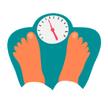

Write a comment
Mariela (Wednesday, 03 March 2021 03:03)
This is exactly what I was looking for for a long time. Thanks, Virtual Trainer
Moises (Monday, 08 March 2021 02:31)
wow, this article is amazing.. very useful .. thank you very much online trainer
Melissa (Friday, 02 April 2021 19:49)
wow!! this is an amazing article, very useful and up to date. Thanks for sharing